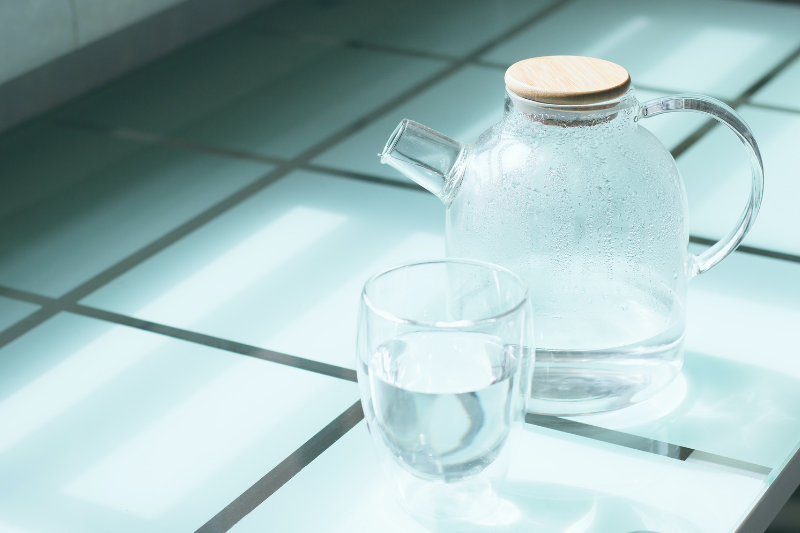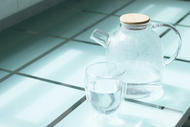Brewing Tea in Hard Water Areas
29th Apr 2021

If you are lucky enough to have a soft water supply there is very little you need to do to improve it. Hard water, however, is a little more problematic. Never fear though, here is some advice on how to soften water and enjoy a perfect tasting cuppa:
Firstly, why do we need soft water for our tea? Quite simply because it tastes much better! hard water makes tea darker and more viscous, and effects the overall flavour. Most of the hardness contained in tap water is calcium carbonate (common chalk). This calcium forms the limescale familiar to hard water house-holds, and must be removed to allow the delicate flavours of your tea to emerge. There are a few ways this can be achieved and there are pros and cons to each method;
1. Use a Water filter jug or water filter kettle
One of the easiest methods is to use a water filter jug to fill your kettle or purchase a combined water filter kettle from a reliable brand such as Brita. These use cartridges and are very effective at reducing limescale. However, you will need to replace these on a regular basis.
2. Water softeners
These filters exchange calcium ions for sodium ions. A water softener filter system can be installed in your home, so this isn't the cheapest method. However, many report that it is worth the additional cost in the long run, as it will prevent limescale build up on kettles and other appliances such as washing machines, dishwashers and irons. This is suitable for low to moderate hard water areas, anything higher than 400ppm calcium would not be advisable to drink.
3. Reverse osmosis (RO) filter
These filters are an ideal choice if you are living in a region with very hard water or a property that needs to filter additional contaminants such as heavy metals for instance. However, these filters remove all impurities, good and bad, from your drinking water. You may wish to use mineral supplements to replace the 'good guys' removed by RO.
4. The simple method
Fortunately for us calcium carbonate provides temporary hardness, unlike calcium sulphate which is almost impossible to remove. By treating your hard water to a prolonged boil the calcium carbonate will become solid and sink to the bottom. Here is a simple method you can try:
Fill a large saucepan with tap water and bring to the boil. Maintain the boil for 10 -15 minutes then remove from the heat. At this stage chlorine added by the water company will have been removed. Allow the boiled water to cool to room temperature then carefully pour into another receptacle, leaving behind any sediment. Your water is now ready to use or pour into bottles for later use.
*The above guidance is suitable for those living in the UK.

